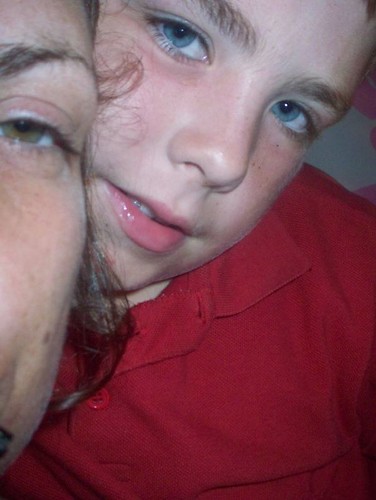Hyperactivity - not always a child's disorder
HYPERACTIVE children can grow up to become hyperactive adults, according to new research by a team of psychologists.
Attention Deficit Hyperactivity Disorder (ADHD) had been thought to be a condition that mainly affected children, but a study found that sufferers’ attention spans and powers of concentration did not improve with age.
Older people who had been diagnosed with ADHD were better able to control impulsive responses than younger sufferers, but they experienced other problems believed to be connected to the condition.
These included higher levels of both anxiety and depression, which researchers said suggested the longer someone lived with the disorder the more distress they felt.
The findings of the study of more than 200 people aged 16 to 50 were reported to the Division of Clinical Psychology’s annual conference in Manchester.
The Scottish Executive said it had "no plans" to set up a treatment centre for adults with ADHD, but would examine the new research.
There is a centre in London but its acceptance of adult ADHD has remained controversial among health workers and there are few other specialist services available.
Dr Jessica Bramham, a chartered clinical psychologist who carried out the research with several colleagues from the Institute of Psychiatry in London, said adult ADHD sufferers were not being given adequate treatment because many health organisations did not recognise that the condition continued after childhood.
"These findings confirm that ADHD does not necessarily disappear by the time a child reaches their 18th birthday," she said.
"Some adults can continue to experience significant cognitive and emotional problems associated with the disorder.
"Treatment can substantially improve their functioning but still many services do not recognise that ADHD may persist beyond childhood."
The belief that ADHD was limited to childhood was partly based on some studies which showed improvements in several symptoms as the child grew older, but the study found this "trajectory is not clear through the disorder in adulthood".
Dr Bramham said the impression that ADHD went away as people got older was based on an improvement in some sufferers’ condition.
"It does go away for a proportion of people. As their brains develop the symptoms don’t manifest any more, probably about 50 per cent don’t have it any more," she said.
"But there is a proportion who still go on to have the full-blown syndrome and another proportion who will have some symptoms.
"They may have lots of psychological problems through growing up with this and may need help with anxiety, depression and substance abuse.
"A three-year-old climbing the walls with ADHD may not be doing so when they get older but they may be still fidgeting in their seat, they may feel internally restless.
"It could be they have learned from social situations that they cannot be climbing the walls."
ADHD is thought to cover a range of disorders caused by brain conditions, genetic problems and birth trauma.
Sufferers have reduced levels of the chemical dopamine in the brain. Symptoms can be relieved by the controversial drug Ritalin - known as the "chemical cosh" and which some fear can cause lasting damage - anti-depressants and amphetamine-based drugs.
Undiagnosed sufferers who do not receive treatment are highly likely to end up in prison - some believe as many as 50 per cent of prisoners either have ADHD or had it as a child. They also have a higher tendency to use illegal drugs, which some researchers view as a form of "self-medication".
Dr Bramham, who works at the adult ADHD centre in London, said: "If they are untreated they are more likely to be sensation-seeking and get into drugs. They can find things like speed calm them down a bit and make them feel more normal. Alcohol and cannabis are also used."
Police in Newcastle have started trying to identify and get help for ADHD sufferers, mainly teenagers, as a form of crime prevention.
The London ADHD centre began informally about ten years ago when a psychologist agreed to see sufferers who were being dropped on their 18th birthday by child health services but still needed help.
"Once word got round he was seeing adults with ADHD, people started referring cases," Dr Bramham said.
It now sees about 150 people a year. However despite a decade of work, there is still scepticism about the idea of hyperactive adults among many health professionals, with one doctor calling the London centre "experimental".
A Scottish Executive spokesman said: "We have no plans to set up a similar centre in Scotland, but would be interested to hear about any positive results which come out of the project."
However he said new guidelines were being drawn up for the treatment of ADHD "at all ages" by the National Institute for Clinical Excellence.
Treatment of jailed criminals with ADHD was a matter for the prison service.
"We recognise that there may be a higher than average proportion of the prison population with personality disorders. It is therefore vital that they receive the appropriate care on referral by the Prison Medical Service," the spokesman added.
Dr Bramham said she hoped her study would finally help win over those who remained doubtful.
But she added: "Even the people referring patients to us are sometimes a bit sceptical, saying ‘This person thinks they have ADHD, but I’m not so sure myself’."
Related topics
- Ritalin: http://news.scotsman.com/topics.cfm?tid=1228
- Scottish Executive: http://news.scotsman.com/topics.cfm?tid=867
This article: http://news.scotsman.com/topics.cfm?tid=1228&id=348272005


No comments:
Post a Comment